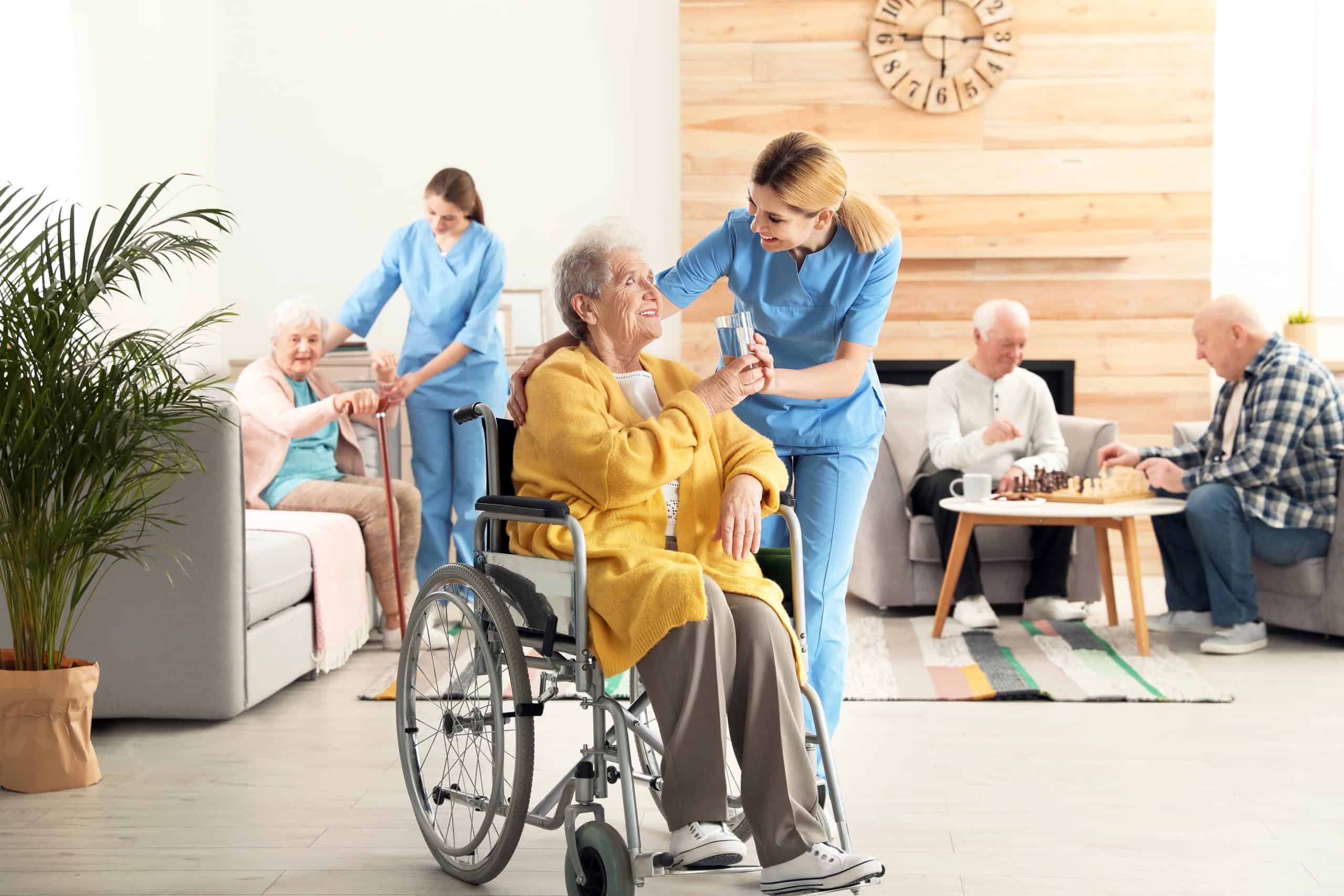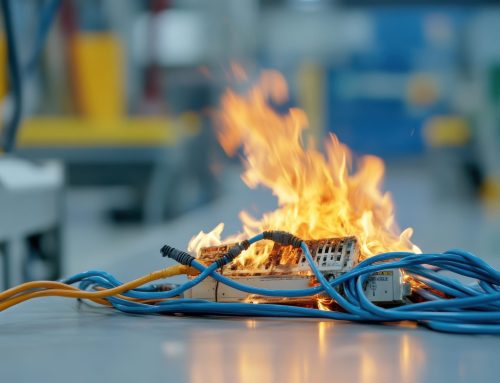Assisted living communities operating in the state of Georgia must have an effective fire safety program for the benefit of the residents that considers the unique needs of the residents who live in the facility.
The community must comply with applicable fire and safety rules per the Office of Fire Safety Commissioner and other local ordinances, which includes specific fire drill requirements for assisted living facilities operating within the state of Georgia.
Rules under the Georgia Department of Community Health
Healthcare Facility Regulation (HFR), a division of the Department of Community Health (DCH), is responsible for health care planning, licensing, certification and oversight of various health care facilities and services in Georgia, which includes assisted living facilities. This division provides fire safety rules and regulations through the Georgia State Minimum Standard Fire Code (International Fire Code, with Georgia state amendments).
Rules of Georgia Department of Community Health, Chapter 111-8-63 is specific to assisted living communities and requires that fire evacuation plans include the following:
- Emergency egress or escape routes and whether evacuation of the building is to be complete or, where approved, by selected floors or areas only.
- Procedures for employees who must remain to operate critical equipment before evacuating.
- Procedures for assisted rescue for persons unable to use the general means of egress unassisted.
- Procedures for accounting for employees and occupants after evacuation has been completed.
- Identification and assignment of personnel responsible for rescue or emergency medical aid.
- The preferred and any alternative means of notifying occupants of a fire or emergency.
- The preferred and any alternative means of reporting fires and other emergencies to the fire department or designated emergency response organization.
- Identification and assignment of personnel who can be contacted for further information or explanation of duties under the plan.
- A description of the emergency voice/alarm communication system alert tone and preprogrammed voice messages where provided.
Other special requirements for assisted living facilities
Residents living in assisted living communities may require additional assistance when walking or moving around. These individuals may also have medical needs that restrict them to a certain area.
Per the rules outlined by the DCH, if the HFD has reason to believe, “based on the number of residents requiring assisted self-preservation and staffing patterns, that an assisted living community may not be able to evacuate all of the residents to a designated point of safety within an established period of time as determined by the Office of the Safety Fire Commissioner, the Department may either require the assisted living community to conduct an immediate fire safety drill or make a referral for a new compliance determination to the Office of the State Fire Commissioner.”
“Assisted self-preservation” is the capacity of a resident to be evacuated from an assisted living community to a designated point of safety and within an established period of time as determined by the Office of Fire Safety Commissioner. Assisted self-preservation is a function of: (A) the condition of the individual, (B) the assistance that is available to be provided to the individual by the staff of the assisted living community; and (C) the construction of the building in which the assisted living community is housed, including whether such building meets the state fire safety requirements applicable to an existing health care occupancy.
Assisted living communities must complete mandatory fire drills quarterly during an established period time, as determined by the Office of the Safety Fire Commissioner.
Taking into consideration the physical limitations of many individuals living in assisted living communities, HFR surveyors will not require an assisted living community to initiate an immediate fire drill without the surveyor having obtained specific verbal approval from HFRD program management and considering weather conditions where the community is located, the time of day/night, the number of staff available, the number of residents requiring assisted self-preservation and the number of residents who have private caregivers present.
NFPA provides free documents like the Emergency Evacuation Planning Guide for People with Disabilities for anyone looking for help in creating a safe and compliant fire drill procedures.
NFPA 101 Life Safety Code (LSC) & NFPA 99 Health Care Facilities Code (HCFS)
Through a contract between the Georgia Insurance and Safety Fire Commissioner and the Commissioner of the Georgia Department of Human Resources, the Office of the State Fire Marshal conducts federally required Life Safety Code(LSC) inspections in all health care facilities that are providers of the Centers for Medicare and/or Medicaid Services Program(CMS), which includes nursing homes.
The LSC is a set of fire protection requirements designed to provide a reasonable degree of safety from fire. It covers construction, protection, and operational features designed to provide safety from fire, smoke, and panic.
The HCFC is a set requirement intended to provide minimum requirements for the installation, inspection, testing, maintenance, performance and safe practices for facilities, material, equipment, and appliances.
Evacuation capability determination for assisted living facilities is outlined within NFPA 101 Life Safety Code.
Assisted living facilities vs. senior housing
NFPA reports that older adults are more vulnerable to fires compared to the general population; at age 65, people are twice as likely to be killed or injured by fire. It’s critically important that we carefully consider the living environments of older individuals to ensure their safety from fire and related risks.
“Assisted living community” means a personal care home serving 25 residents or more that is licensed by the department to provide assisted living care. If the home offers assisted living care, it must be licensed as an assisted living community.
To qualify to be licensed as an assisted living community, the community must offer personal services, administration of medications by certified medication aides, and assisted self-preservation.
“Senior housing” may not be categorized under facilities that would all under certain state and federal guidelines that would ensure the safety of all residents. For example, assisted care facilities must establish emergency evacuation plans and procedures for residents receiving 24-hour supervision, which will include procedures on evacuating individuals with physical limitations; however, there are no fire safety provisions specific to the needs of older adults in occupancies referred to as “senior housing.”
Fire Systems, Inc. has been a major provider of fire protection services for assisted living facilities based in Georgia. Fire Systems understands all of the fire code requirements for these facilities and can be of assistance when building managers need help understanding and implementing fire drill requirements for assisted living facilities. Visit our website for more information or call us today at 770-333-7979.






